Martin Amis Quotes & Sayings (Page 2)
Martin Amis quotes and sayings page 2 (76 year old author). Here's quote # 11 through 20 out of the 44 we have for him.
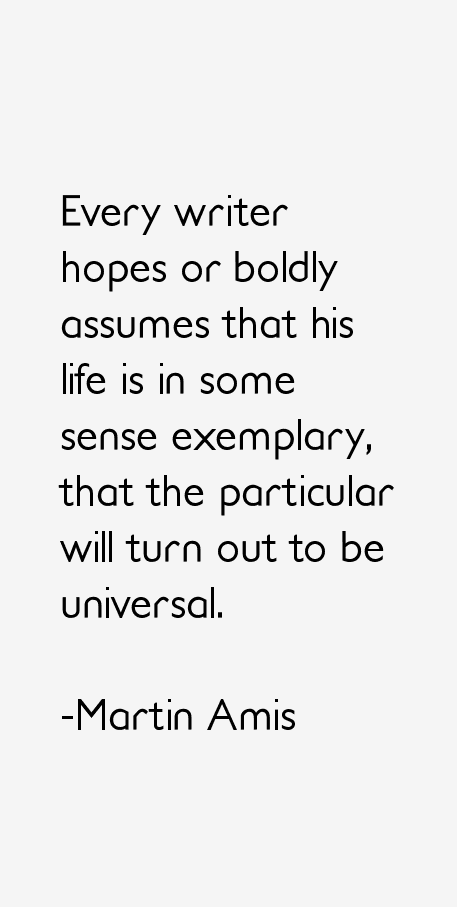
“Every writer hopes or boldly assumes that his life is in some sense exemplary, that the particular will turn out to be universal.”
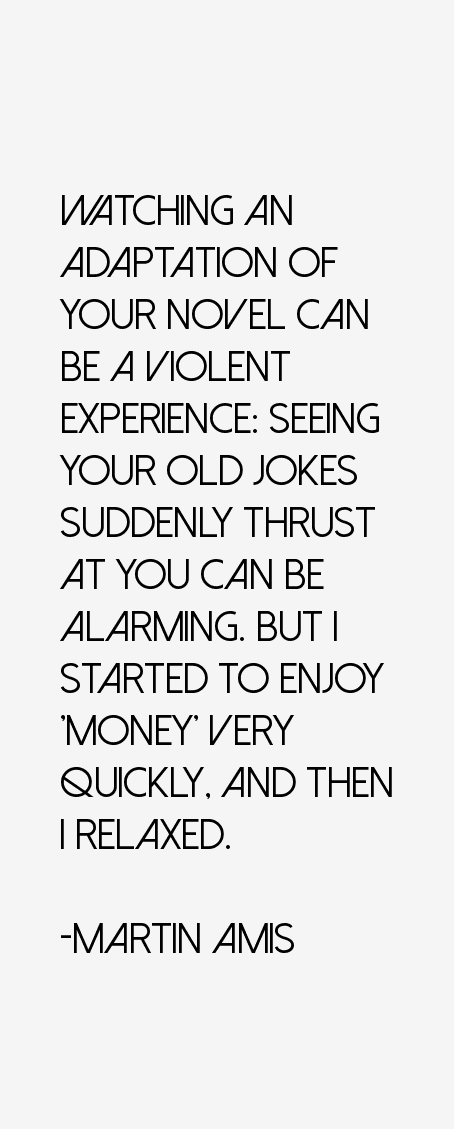
“Watching an adaptation of your novel can be a violent experience: seeing your old jokes suddenly thrust at you can be alarming. But I started to enjoy 'Money' very quickly, and then I relaxed.”
“The middle class is doing fine in fiction. But it's not what gets me going. I love the working class, and everyone from it I've met, and think they're incredibly witty, inventive - there's a lot of poetry there.”
“Several people, not just reviewers, took me to task for writing about what they called the working classes - something I've been doing for 40 years. I thought that was contemptible - what do they want to do, ghettoize the working class as a subject? Can you only write about your own class? I've written about royalty, am I not allowed to do that?”
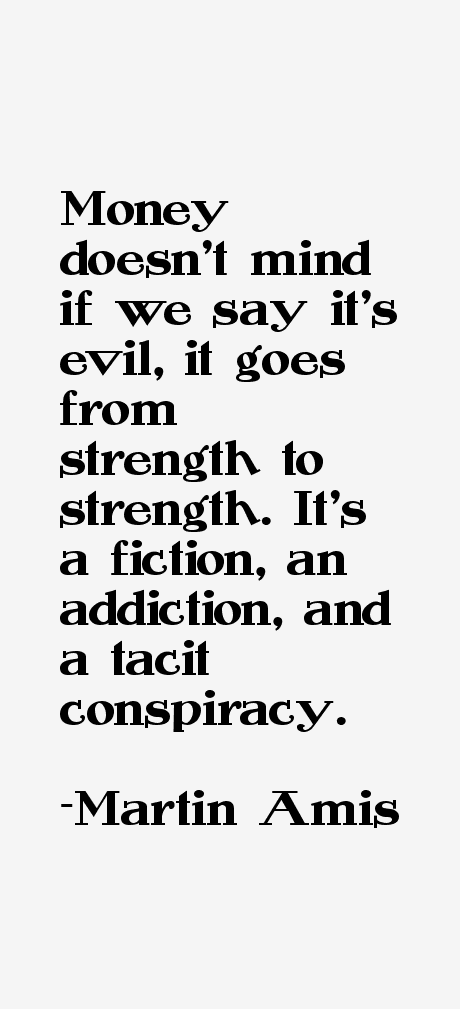
“Money doesn't mind if we say it's evil, it goes from strength to strength. It's a fiction, an addiction, and a tacit conspiracy.”
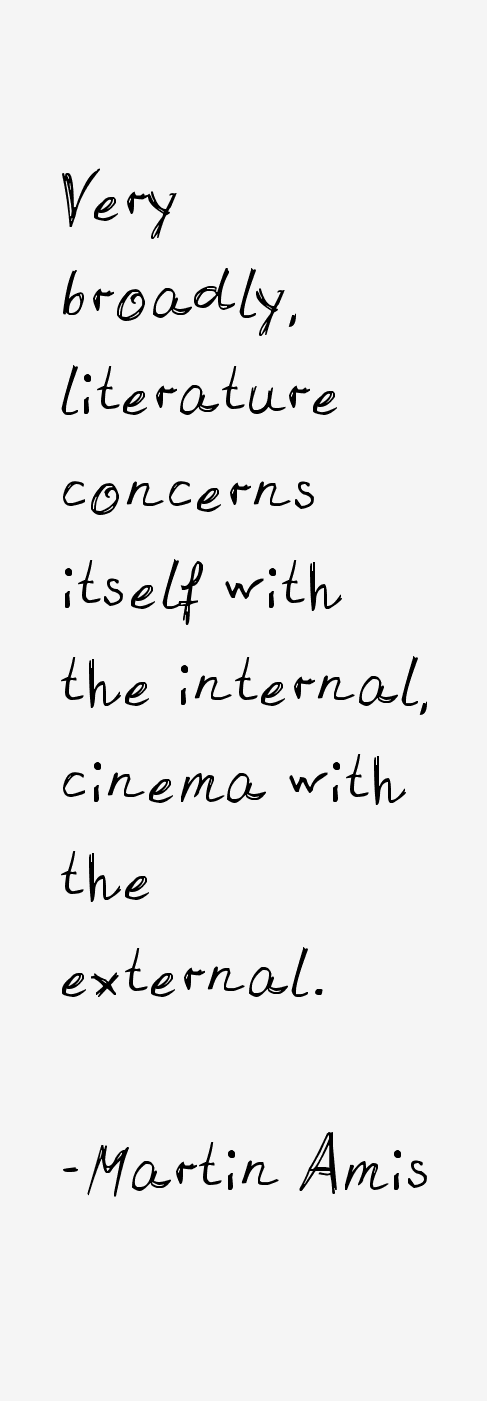
“Very broadly, literature concerns itself with the internal, cinema with the external.”
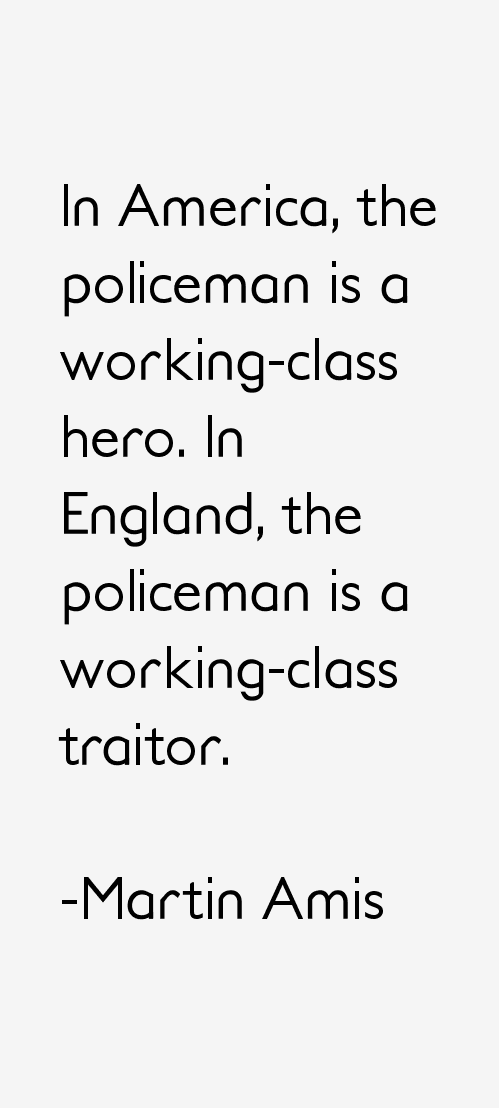
“In America, the policeman is a working-class hero. In England, the policeman is a working-class traitor.”

“Every 10 years you're a different person, and the really great books evolve with you as you get older. They're full of new rewards.”
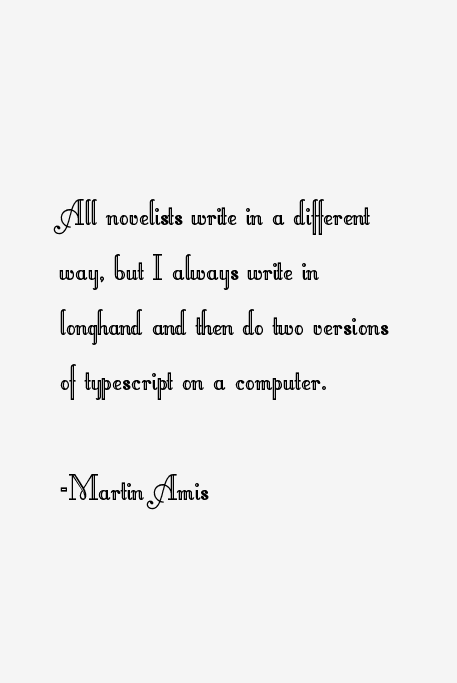
“All novelists write in a different way, but I always write in longhand and then do two versions of typescript on a computer.”
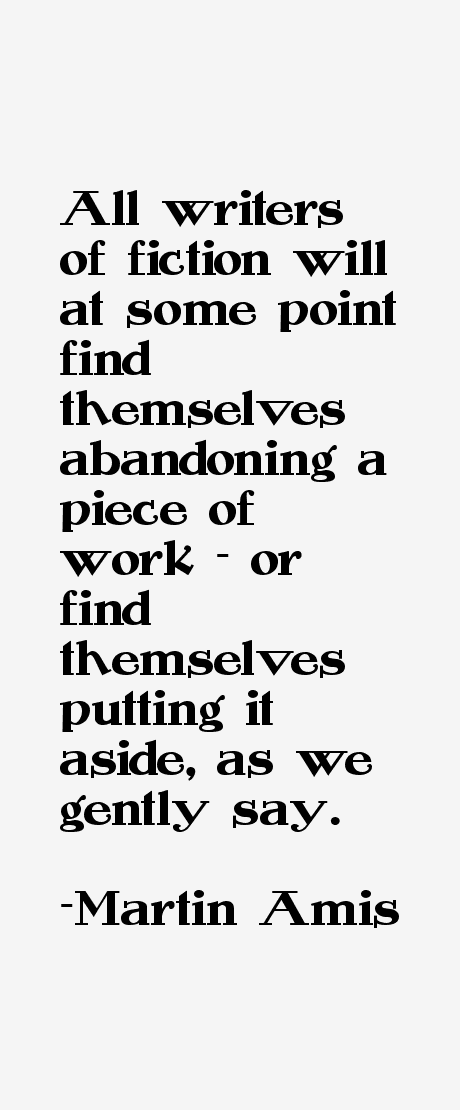
“All writers of fiction will at some point find themselves abandoning a piece of work - or find themselves putting it aside, as we gently say.”
Martin Amis Quotes Rating
No Ratings Yet
Leave A Comment
























